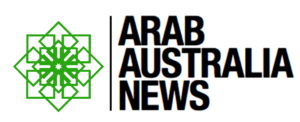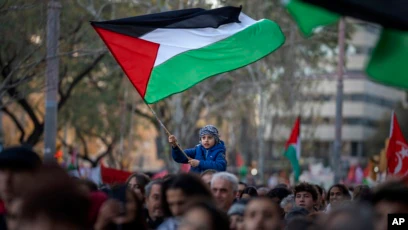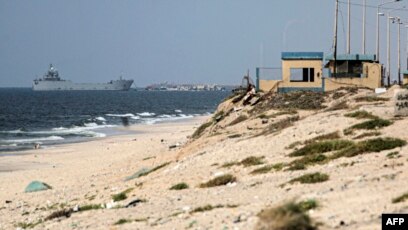Ireland, Norway and Spain each announced Wednesday the recognition of a Palestinian state, citing the Israel-Hamas war in Gaza and a need to achieve a two-state solution for lasting peace in the region.
“The ongoing war in Gaza has made it abundantly clear that achieving peace and stability must be predicated on resolving the Palestinian question,” Norway Prime Minister Jonas Gahr Støre said. “The war is the lowest point in the prolonged Israeli-Palestinian conflict. The situation in the Middle East has not been this grave for many years.”
Norway said there is broad international consensus about the need for a two-state solution, including an overwhelming vote at the U.N. General Assembly this month to recognize the Palestinians as qualified to join the world body.
Spain’s Prime Minister Pedro Sánchez said the decision was based on “peace, justice and coherence.”
“Time has come to move from words into action,” Sánchez said.
The three countries said their recognition of a Palestinian state will take effect May 28.
In Washington, the White House National Security Council said President Joe Biden “is a strong supporter of a two-state solution and has been throughout his career.”
However, it said Biden “believes a Palestinian state should be realized through direct negotiations between the parties, not through unilateral recognition.”
Israeli Foreign Minister Israel Katz immediately announced the recall of Israel’s ambassadors from all three countries that recognized a Palestinian state.
“History will remember that Spain, Norway, and Ireland decided to award a gold medal to Hamas murderers and rapists,” Katz said.
Katz said recognizing a Palestinian state is a reward to Hamas and Iran, and an “injustice to the memory” of those killed in the October 7 Hamas attack on Israel that killed 1,200 people and led to the capture of about 250 hostages.
Israel’s subsequent seven-month counter-offensive in Gaza has killed more than 35,000 civilians and combatants, although the Gaza Health Ministry says most of the dead are women and children.
“Israel will not remain silent in the face of those undermining its sovereignty and endangering its security,” Katz said.
Ireland’s prime minister, Simon Harris, said Ireland unequivocally recognizes Israel and its right to exist “securely and in peace with its neighbors.” Harris called for all of the hostages currently being held by Hamas in Gaza to be released.
Harris pointed to Ireland’s own history and the importance of getting recognition from other nations.
The vision for a Palestinian state put forward by Norway is not one led by the Hamas militants who have ruled the Gaza Strip since 2007, but one derived from the Palestinian Authority in charge of parts of the West Bank.
Norway’s Støre said the situation in the Middle East “has not been this grave for many years,” and that recognizing a Palestinian state is a way of “supporting the moderate forces which have been losing ground in this protracted and brutal conflict.”
“In the midst of a war, with tens of thousands killed and injured, we must keep alive the only alternative that offers a political solution for Israelis and Palestinians alike: Two states, living side by side, in peace and security,’ Støre said.
Aid suspension
The United Nations has suspended food distribution in Rafah on Gaza’s southern border due to depleted supplies and insecurity.
U.N. spokesman Stephane Dujarric said Tuesday the distribution centers of the World Food Program and UNRWA, the agency for Palestinian refugees, are inaccessible because of the ongoing Israeli military operation in Rafah.
About 1.1 million people face high levels of hunger, the U.N. said. The Rafah crossing into Egypt, once the main entrance for aid, has been closed since May 6, and no aid trucks have crossed the U.S.-built floating pier in two days, the U.N. said.
A WFP spokesperson said the “humanitarian operations in Gaza are near collapse.” Abeer Etefa warned that if food and other supplies don’t resume entering Gaza in “massive quantities, famine-like conditions will spread.”
In addition, UNRWA said its health centers have not received any medical supplies in 10 days, but its health care staff still conducts medical consultations at its centers that remain open.
Meanwhile, the head of the World Health Organization said in a post on X that Al-Awda Hospital in northern Gaza has been “under siege since 19 May, with no one allowed to leave or enter.”
WHO chief Tedros Adhanom Ghebreyesus said that 22 patients and their companions, and 148 hospital staff “are still trapped inside.”
The medical staff at al-Awda reported a sniper attack on the building Monday. An artillery rocket hit the fifth floor where the administration office is located, but there were no injuries.
The WHO chief called for humanitarian access to the hospital and an immediate cease-fire.
A senior U.S. official briefing reporters on Tuesday said there are now multiple crossing points for aid to come into Gaza, including through the humanitarian sea corridor where aid is inspected in Cyprus and delivered straight to the Israeli port of Ashdod without additional inspection there.
“We’re looking to flood in [aid] as much as possible. And then it is up to a number of groups inside Gaza to do the distribution in various ways,” the official said. He noted the need to coordinate deconfliction and convoys encountering armed elements that “self-distribute” humanitarian assistance.
Some information for this report came from The Associated Press, Agence France-Presse and Reuters.










